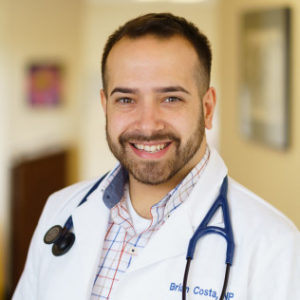 By Brian Costa, RN-MSN, FNP-C
By Brian Costa, RN-MSN, FNP-C
June, also known as PRIDE month, is the month where the LGBTQ+ community reflects on the past, debates the present, and organizes for the future. My focus here is to bring attention to the most resilient individuals of our movement, our older adults.
Historically, these older individuals experienced irrational and senseless judgement, as well as homophobia in all facets of life. These are the same people who, if outed and openly gay, risked losing their jobs, experienced isolation by their families, friends and colleagues, and faced an unprecedented amount of prejudice in public.
Many LGBTQ+ older individuals live with survivor’s guilt after countless friends succumbed to a horrifying virus that would be ignored by their own government for years. Many now face PTSD from years of legal legislation that would condone and support police brutality, refusal of care by medical providers, and discrimination in workplaces.
With all these obstacles, the LGBTQ+ community would persevere, and strive.
However, there continues to be health disparities which our older gay populations struggle with. According to the American Psychological Association, there are 2.4 million people who identify as LGBTQ+ over the age of 65. These older adults are disproportionately affected by poverty, physical, and mental health due to a lifetime of unique stressors associated with being a minority, which have made them more vulnerable to neglect and mistreatment in aging care facilities. They face dual discrimination due to their age, sexual orientation or gender identity.
Generational differences and lack of legal protection may cause older LGBTQ+ adults to be less open about their sexuality. Social isolation is also a concern because older LGBTQ+ adults are more likely to live alone, be single, and less likely to have children. Studies suggest that this population has higher rates of chronic conditions such as obesity, hypertension, high cholesterol, arthritis, cardiovascular disease, as well as diabetes. Older LGBTQ+ people may delay their care or necessary tests due to facing discrimination in health care.
Given all these concerning statistics, it is important for the older LGBTQ+ community here on the Southcoast to recognize they are not alone or abandoned.
There are services and supports available to them. One of these is the LGBTQ+ Network of SouthCoast Massachusetts, a 501( c ) (3) nonprofit organization whose sole mission is to create and support a thriving LGBTQ+ community on Massachusetts’ South Coast, where individuals across the age spectrum can freely, safely, and joyously celebrate their true selves and realize their full potential.
My goal as an openly gay medical provider through the Greater New Bedford Community Health Center is to provide specialized, informative, and supportive care to these most fragile populations. As we have seen historically, the movement is only as strong and successful as its members. We must come together to help facilitate building a safer, healthier, and welcoming environment for all of us – a challenge I am more than willing to accept.
Brian Costa, RN-MSN, FNP-C, is a primary care provider at the Greater New Bedford Community Health Center, https://gnbchc.org, and an executive board member for the LGBTQ+ Network Southcoast MA, https://www.sclgbtqnetwork.org/about.html.

Recent Comments